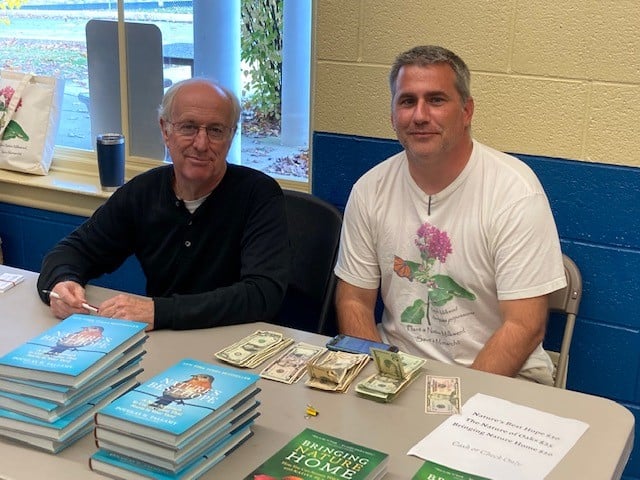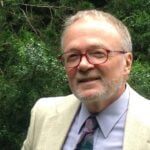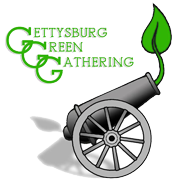November 6, 2022 by Will Lane
The Gettysburg Green Gathering welcomed entomologist and native species advocate Doug Tallamy to the Charlie Sterner Building at the Gettysburg Rec Park last night for a presentation on “nature’s best hope,” the re-wilding of the spaces and places where we live and work.

Dr. Tallamy is a professor of entomology at the University of Delaware with a special interest in the way insects interact with plants to create functioning ecosystems that are able to sustain other species such as birds and mammals like ourselves. His books include “Bringing Nature Home” (2005), “Nature’s Best Hope” (2019), and most recently the “Nature of Oaks” (2021).
The event was sponsored by a grant from the Adams County Community Foundation Fund for the Environment. A range of local environmental organizations were also represented at the gathering including: the Adams County Watershed Alliance, the Green Gettysburg Book Club, Strawberry Hill, Gettysburg Garden Club, Penn State Extension Master Gardeners and the Land Conservancy of Adams County. More than 120 audience members also took part.
Tallamy began by referencing a mentor and inspiration of his, E. O. Wilson, the ant specialist and well-known author, whose recent book “Half-Earth” calls for setting aside half the surface of the planet primarily for other species. According to Wilson and others, humanity needs a functioning biosphere in order to survive because it provides us with air to breath, clean water, and essential services such as pollination for our food crops. “But we have lived with the illusion that we could foul our nest indefinitely without consequences,” Tallamy said.
We cannot “eat sunlight” directly, he added. 90% of plants—including those we depend on for food–are pollinated by insects, and insect populations are dropping dramatically. “We are in the midst of a sixth great extinction event,” he maintained. “Now, 1/3 of the planet’s bird population is already gone. And overall, one million species of all kinds may be lost in the next ten years…. We need a cure for this pox!” he said.
“Setting aside half the Earth for nature would save at least 80-85% of existing species, but is such a thing even possible?” Tallamy asked. “One-half of available land is already tied up with agriculture. The area dedicated to raising cows alone is four-and-a-half times the size of Texas,” he said. Existing wild places such as national and state parks are important but too small, too fragmented to get the job done. To begin to address this problem, we must “rediscover and restore nature where we live and work.”
“Living with nature is an option,” he said. “We need to rebuild nature and restore species relationships” starting at our own doorsteps. We can do this, he said, by planting the native species that insects have evolved to eat. Since 78% of the land in the United States is privately owned, including 86% east of the Mississippi, he said, much can be done by individuals and corporations in support of this effort.
This replanting and restoration will connect existing wild places and create what Tallamy calls Homegrown National Park, an area potentially larger than our top six largest national parks combined. To achieve Homegrown National Park we must overcome three earlier missteps, he said: thinking of nature as optional, not essential; thinking that humans and nature must be separate and can’t coexist; and leaving stewardship to a few professionals. It’s a responsibility for us all, he said. We have rights but also obligations to the land and to the functioning ecosystems that sustain us.
One big job for Tallamy, practically speaking, would be to reduce the area of our country devoted to lawns which now cover 44 million acres, an area larger than New England, and are essentially a desert space in term of support for species. The personal benefits of bringing nature closer to home are several for Tallamy: with nature right outside our back doors we can avoid the traffic hassles required for accessing many national parks and spend time with nature alone without the distraction of crowds and long rides in a car, something especially important for young people, he said.
Featured image credit: Speaker Doug Tallamy (left) and John Maciolek of the Gettysburg Green Gathering

Will Lane, a founding member of Green Gettysburg and the Green Gettysburg Book Club, is a Lecturer in English and Affiliated Faculty Member with Environmental Studies at Gettysburg College
